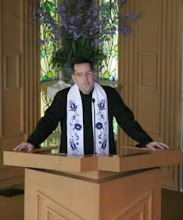A Memorial Day Litany
In Memory of All Victims of War and Terrorism:
Ashes, Stones, and Flowers
For vibrant lives suddenly and shamelessly sacrificed, we lift up the ashes of our loss,
O Source of Life.
For the lives that continue, haunted forever by the pain of absence, we lift up the ashes of our remorse,
O Wellspring of Compassion.
For the conflagration of flames and nightmare images forever seared into our memories, we lift up the ashes of our pain,
O Breathing Spirit of the World.
For the charred visions of peace and the dry taste of fear, we lift up the ashes of our grief,
O Infinite.
For all the deaths that have been justified by turning the love of God or country into fanatical arrogance, we lift up the ashes of our shame,
O God.
As we cast these ashes into the troubled water of our times, Transforming One, hear our plea that by your power they will make fertile the soil of our future and by your mercy nourish the seeds of peace.
The people recite the names of the dead.
The people cast the ashes in silence into the river [or a bowl of water].
For the ways humanity pursues violence rather than understanding, we lift up the stones of our anger,
O Breathing Spirit of the World.
For the ways we allow national, religious and ethnic boundaries to circumscribe our compassion, we lift up the stones of our hardness,
O Wellspring of Compassion.
For our addiction to weapons and the ways of militarism we lift up the stones of our fear,
O Source of Life.
For the ways we cast blame and create enemies we lift up the stones of our self-righteousness,
O God
As we cast these stones into this ancient river, Transforming One, hear our plea:
Just as water wears away the hardest of stones, so too may the power of your compassion soften the hardness of our hearts and draw us into a future of justice and peace.
The people recite the names of the dead.
The people cast the stones in silence into the river [or a bowl of water].
For sowing seeds of justice to blossom into harmony, we cast these flowers into the river,
O Source of Peace.
For seeing clearly the many rainbow colors of humanity and earth, we cast these flowers into the river,
O Infinite.
For calling us to life beyond our grieving, we cast these flowers into the river,
O Breathing Spirit of the World.
As we cast these flowers into this ancient river, Transforming One, hear our plea:
Just as water births life in a desert and gives hope to the wounded, so too may the power of your nurturing renew our commitment to peace.
The people recite the names of the dead.
The people cast the flowers in silence into the river [or a bowl of water].
[Litany by Rev. Patricia Pearce, pastor of Tabernacle United Church, Philadelphia, and Rabbi Arthur Waskow, director of The Shalom Center.

